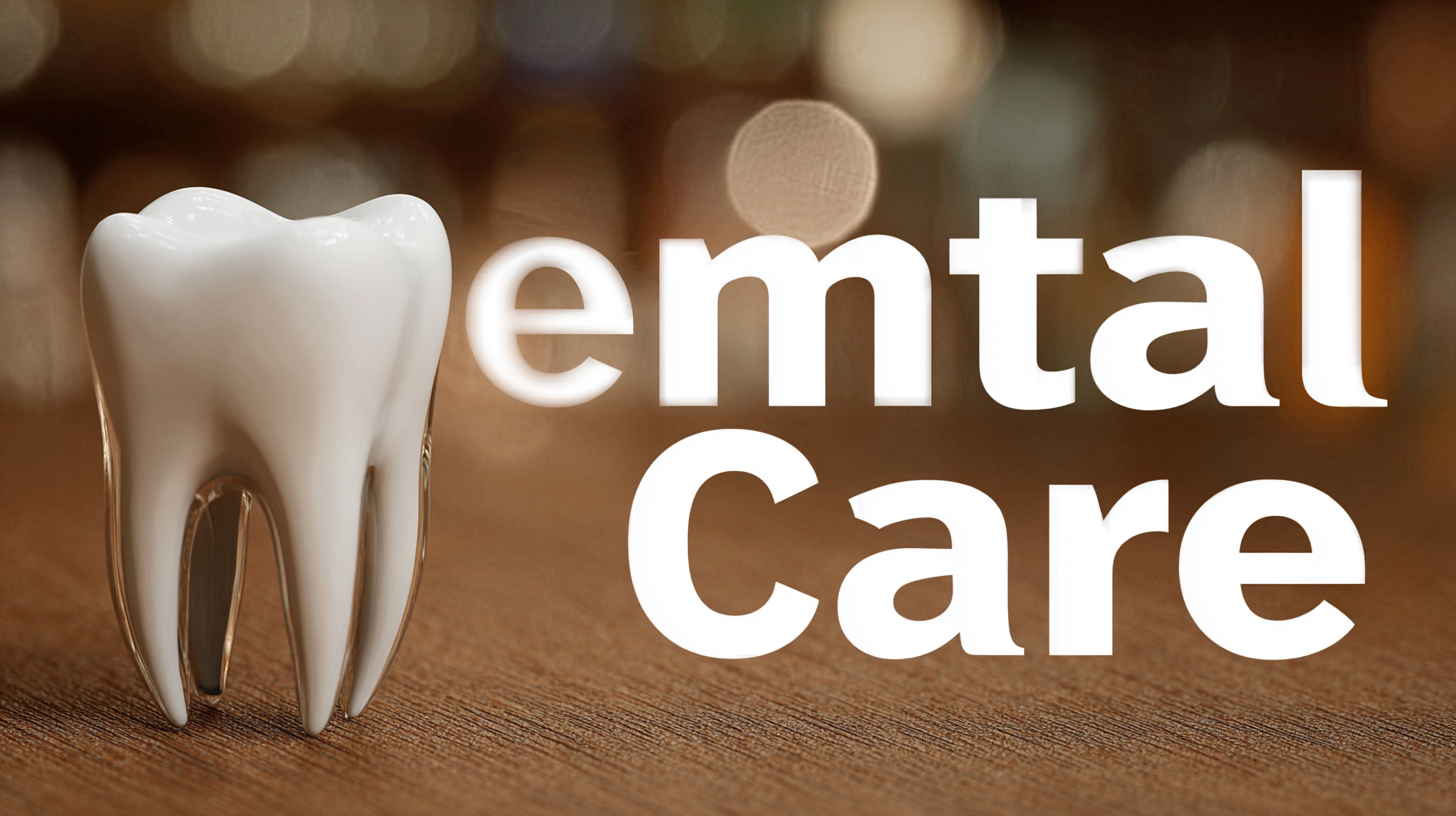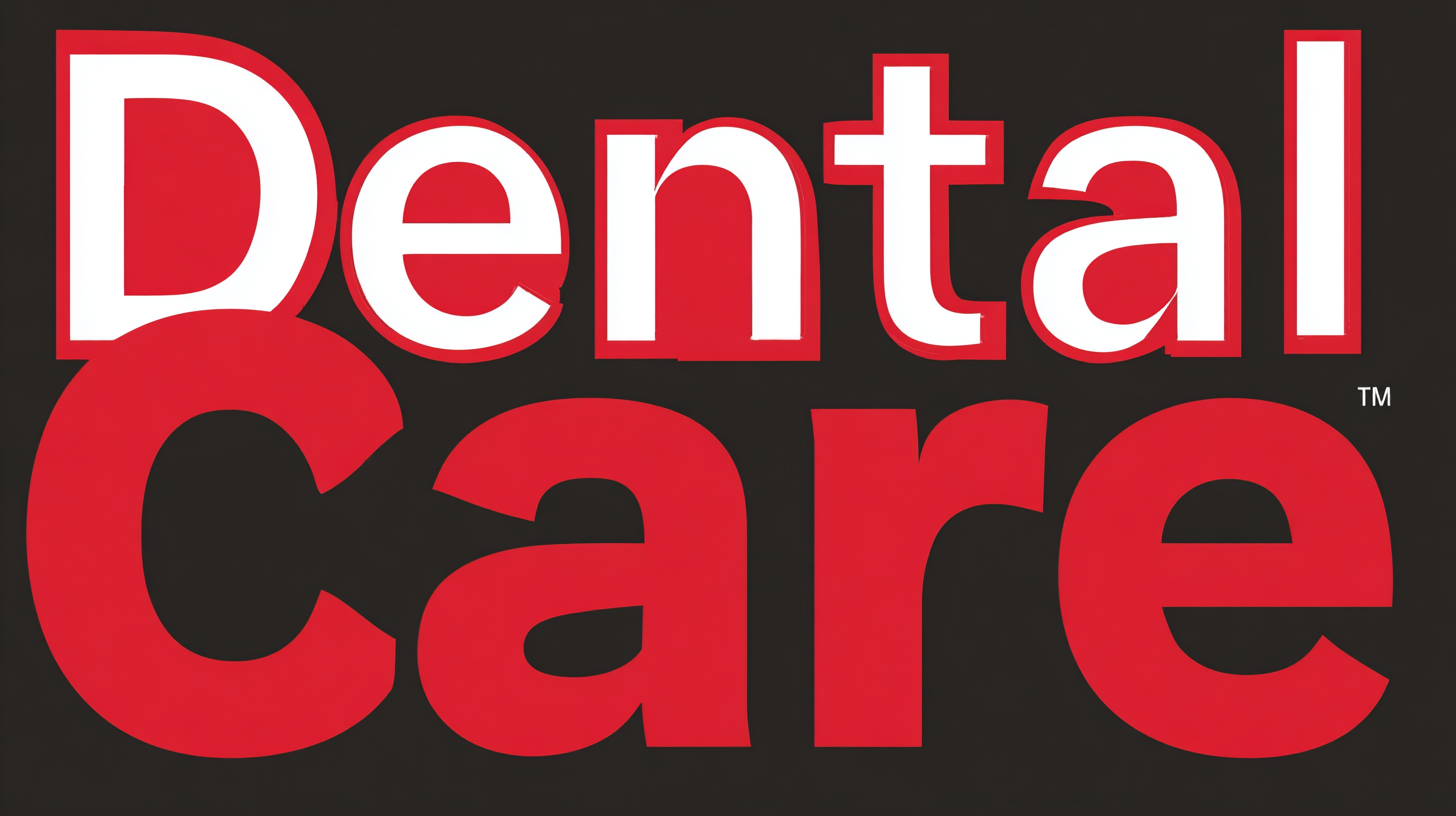Understanding the Essentials of Best Dental Care Practices
Dental care is an essential aspect of maintaining overall health and well-being, yet many individuals overlook its importance. According to the American Dental Association, nearly 90% of adults experience some form of dental disease in their lifetime, highlighting the need for effective and accessible dental care practices.

As we explore alternatives in dental care, it's crucial to note that preventive measures, such as regular check-ups and proper oral hygiene, can significantly reduce the incidence of common dental issues. Moreover, the World Health Organization emphasizes that good dental health contributes to improved quality of life, reinforcing the notion that dental care should not be seen merely as a cosmetic concern but as a vital component of health maintenance.
In this blog, we will delve into best practices and innovative alternatives that can play a pivotal role in enhancing dental care for individuals of all ages.
Best Dental Care Practices: An Overview of Critical Strategies for Optimal Oral Health
Maintaining optimal oral health is crucial, and understanding the best dental care practices is the first step towards achieving it. According to the American Dental Association (ADA), regular dental visits are vital, with a recommended schedule of every six months. Research shows that nearly 47% of adults over the age of 30 exhibit some form of periodontal disease, highlighting the importance of both preventive care and education in maintaining good oral hygiene.

Brushing and flossing are fundamental to effective dental care. The CDC states that only about 22% of Americans floss daily, a key practice in preventing gum disease and cavities. Daily brushing with fluoride toothpaste and the incorporation of flossing can reduce plaque and bacteria buildup significantly. Moreover, diet plays a pivotal role; a study published in the Journal of Dental Research reveals that a diet high in sugars increases the risk of cavities by 30%, making it essential to limit sugar intake for better oral health. By integrating these best practices into daily routines, individuals can significantly enhance their dental health and overall well-being.
The Importance of Regular Dental Check-ups: Stats on Prevention and Early Detection
Regular dental check-ups are crucial not only for maintaining good oral hygiene but also for the early detection of serious health issues, including oral cancer. Recent statistics indicate that oral cancer has a staggering mortality rate of up to 50%, with hundreds of thousands of new cases diagnosed globally each year. The World Dental Federation emphasizes the importance of preventive care, as identifying potential signs of cancer early can significantly improve treatment outcomes and survival rates. Routine check-ups allow dental professionals to screen for abnormalities, which might otherwise go unnoticed until they progress.
Moreover, the burgeoning dental insurance market highlights the increasing recognition of preventive dental care. Reports suggest that many insurance plans prioritize preventive measures, encouraging patients to engage in regular dental visits. By focusing on prevention, which includes biannual check-ups and cleanings, individuals can mitigate risks not only associated with cavities and gum disease but also with more severe conditions like oral cancer. Investing in routine dental screenings is not just a health choice; it is a proactive strategy that can lead to better long-term health outcomes.
Understanding the Essentials of Best Dental Care Practices - The Importance of Regular Dental Check-ups
| Statistic | Value | Implication |
|---|---|---|
| Percentage of adults who visit the dentist regularly | 64% | Regular visits help maintain oral health and prevent issues. |
| Reduction in cavities through preventive care | 40% | Preventive check-ups significantly lower the risk of cavities. |
| Annual dental visits recommendation | 2 visits per year | Regular check-ups are crucial for early detection of issues. |
| Percentage of dental diseases detected at early stages | 70% | Early detection is key to effective treatment. |
| Increase in oral health awareness through education | 50% | Educational programs enhance understanding of dental health. |
Proper Brushing Techniques: How Many People Are Really Doing It Right?
Many people underestimate the significance of proper brushing techniques in maintaining good dental health. Research has shown that a substantial number of individuals do not brush their teeth effectively, leading to plaque buildup and potential oral health issues. To ensure you're among those who get it right, focus on the basics of brushing.
Firstly, it’s essential to use a soft-bristled toothbrush and fluoride toothpaste. Position your toothbrush at a 45-degree angle to your gums, and use gentle, circular motions to clean the outer and inner surfaces of your teeth. Don’t forget to brush the chewing surfaces and your tongue as well, as they both harbor bacteria. Aim for at least two minutes of brushing, which can be easily timed with a song or a timer.
Another crucial tip is to replace your toothbrush every three to four months or sooner if the bristles fray. Keeping your toothbrush fresh ensures optimal cleaning efficiency and minimizes the risk of bacteria transfer. Additionally, complement your brushing routine with daily flossing to remove food particles and plaque between teeth, promoting a healthier mouth overall. With these tips in mind, you can elevate your dental care practice and ensure you're brushing correctly.
Understanding Proper Brushing Techniques
The following chart illustrates the percentage of people who report using proper brushing techniques, including the frequency, technique, and duration of brushing.
Flossing Frequency: Industry Insights on Impacting Gum Health
When it comes to maintaining optimal oral health, flossing frequently is a cornerstone practice that cannot be overlooked. Industry insights reveal that the majority of dental professionals advocate for daily flossing to effectively remove plaque and food particles that toothbrushes often miss. This simple yet powerful habit significantly impacts gum health, reducing the risk of gingivitis and periodontal disease. Regular flossing helps to keep the gumline clean, fostering healthier gums and preventing inflammation that can lead to more serious dental issues.
Furthermore, studies indicate that people who floss consistently experience noticeable improvements in their overall oral health. Not only does it help reduce bad breath and promote a cleaner mouth, but it also enhances the effectiveness of brushing. By integrating flossing into a daily routine, individuals can create a more comprehensive approach to dental care that is supported by both science and expert recommendations. As the industry continues to emphasize the importance of flossing, it remains clear that prioritizing this practice is key to achieving and maintaining healthy gums and a radiant smile.
Nutritional Impact on Dental Health: Data on Sugar Consumption and Cavities
Sugar consumption has long been linked to higher rates of dental cavities, a critical area of concern in oral health. According to the American Dental Association (ADA), the average American consumes over 152 pounds of sugar annually, which significantly raises the risk of tooth decay. This statistic underscores the importance of monitoring dietary choices, as sugary foods and beverages can feed harmful bacteria in the mouth, leading to plaque formation and eventually cavities.
To promote better dental health, consider these tips: First, reduce your intake of sugary snacks and drinks. Opt for healthier alternatives like fresh fruits or nuts that are less likely to contribute to cavity formation. Second, maintain a routine of brushing twice a day and flossing daily to keep your mouth clean and minimize the effects of sugar on your teeth. Lastly, stay hydrated with water instead of sugary sodas, as water helps wash away food particles and neutralizes acids produced by bacteria.
By being mindful of sugar consumption and integrating good oral hygiene practices, you can significantly enhance your dental health and reduce the risk of cavities. Regular dental check-ups can also help monitor your oral health and catch any issues early on.

